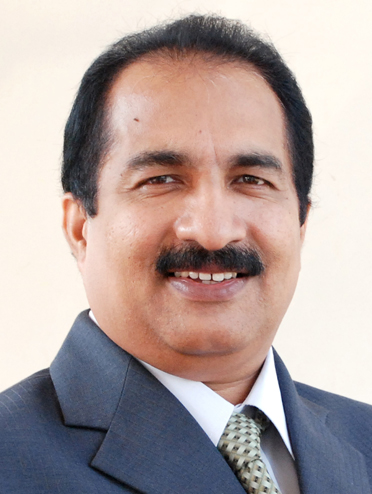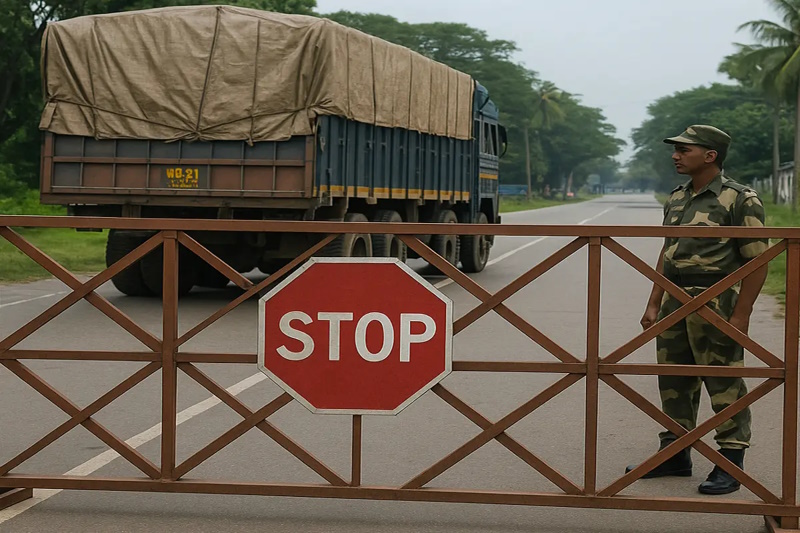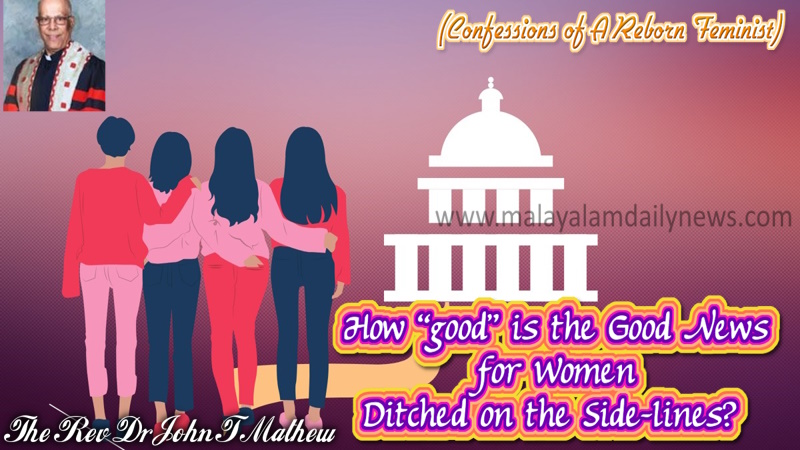 The G7 summit concluded with a rare moment witnessed by the world. The spiritual leader of the Catholic Church, Pope Francis, was not only enthusiastically welcomed by the world heads of state, but the discussions and thoughts of the 50th summit of the Group of Seven Nations spread new experiences and hopes to the people of the world. When the Supreme Leader of the Catholic Church entered the summit the welcome given by him created touching moments of Christian love and brotherhood. This is the first time that the head of the Catholic Church is participating in such a summit.
The G7 summit concluded with a rare moment witnessed by the world. The spiritual leader of the Catholic Church, Pope Francis, was not only enthusiastically welcomed by the world heads of state, but the discussions and thoughts of the 50th summit of the Group of Seven Nations spread new experiences and hopes to the people of the world. When the Supreme Leader of the Catholic Church entered the summit the welcome given by him created touching moments of Christian love and brotherhood. This is the first time that the head of the Catholic Church is participating in such a summit.
Organization Excellence
The main participants of the two-day summit are the heads of Canada, Germany, France, Britain, USA, Japan and Italy and the leaders of the European Union. Summit agendas are decided and arrangements made by host country without formal offices or systems. Canada will host the 51st summit in 2025, followed by Japan in 2023 and Italy in 2024. Apart from Pope Francis, the heads of states of India, Algeria, Brazil, Turkey, Kenya, Tunisia, Argentina, Jordan, UAE, Mauritania and Ukraine were also special guests in the outreach programs of the summit. The host nation invites non-member guest nations to the G7. Artificial intelligence, energy and conflicts in Gaza, Africa and the Mediterranean were the main topics discussed during the outreach session.
Full credit goes to Italy’s Prime Minister Giorgia Meloni for the excellent organization of the summit. Meloni’s leadership achievement was to ensure the presence of the spiritual head of the Catholic Church, Pope Francis, at the summit and to activate discussions in the world community about the ethics of Artificial Intelligence. Meloni sought to warm her personal relations with the heads of state. The proof of that is the ‘Dear Friends, Melodi’ shared in the social media with Indian Prime Minister Narendra Modi.
Shared by Pope Francis
In an outreach session on the second day of the summit, Pope Francis indicated that heads of state have a responsibility to ensure that Artificial Intelligence is used for the good of the world.

Pope Francis shared during a working session on artificial intelligence, energy and Africa-Mediterranean. There is an urgent need to rethink the use and development of tools such as lethal autonomous weapons, and ultimately to ban their use. At the G7 summit, Pope Francis condemned the arms industry and those who profit from the deaths of wars.
At the summit, Pope Francis called for an international agreement to ensure the ethical use of Artificial Intelligence, that artificial intelligence should not have the upper hand over humans, and that humans should not give up their ability to make their own decisions.
While the availability of knowledge to all, advances in scientific research, and technological advancements that reduce the complexity of work are advantages of artificial intelligence, the human ability to make decisions with the heart does not constitute artificial intelligence. Education is subverted when it relies on artificial intelligence for learning purposes. At the summit, Pope Francis warned that the abuse of artificial intelligence could create a negative environment for fuelling inequality by widening the gap between developed and underdeveloped countries, between the powerful and the oppressed.
A working group to study the responsible use of artificial intelligence was announced at the 49th G7 Summit in Japan in May 2023. Host Italy, on the other hand, has made artificial intelligence the main topic of this year’s summit. The presence of Pope Francis has been announced as a crucial contribution to the regulatory, moral and cultural framework for Artificial Intelligence.
The Vatican has continued to hold high-level discussions with scientists and tech executives about the ethics of Artificial Intelligence in 2016 and 2020. Microsoft President Brad Smith, IBM Executive John Kelly III, and Cisco Systems Chief Executive Chuck Robbins recently visited Rome to visit the Pope and the Vatican’s artificial intelligence pledge, Rome Colfor A.I. He has also signed the ethics.
Pope Francis, who has been a constant voice for society’s poorest and most marginalized since becoming head of the Catholic Church in 2013, has taken the G7 nations seriously, pointing to the new freedom and promise of artificial intelligence and warning of the dangers of technological tyranny.
Modi hugs Papa
The friendship shared between Pope Francis and Indian Prime Minister Narendra Modi during the outreach program of the G7 summit surprised the world leaders. Like Pope Francis has given India and the Prime Minister the kind of consideration that no other leader has ever given. Pope Francis, who looked happy while meeting and renewing acquaintances with each of the leaders in a wheelchair, also raised his hands when he saw the Prime Minister. These moments turned out to be one of the best friendship renewals on this stage as he ran to the Pope and hugged him. Earlier, Prime Minister Narendra Modi visited the Pope in October 2021.
There are also reports that the Prime Minister has invited Pope Francis to India again. In 1999, Pope John Paul II was the last head of the Catholic Church to visit India. If Pope Francis comes to India, chances are high that he will also come to Kerala.
India’s Marathon Debate
The G7 summit is Narendra Modi’s first foreign visit after assuming power for the third time as Prime Minister. The excellent organization and announcements of the G20 summit held in Delhi on 9th September 2023 has given the prime minister a great advantage when he comes to attend the G7 due to the inter-kingdom impression and camaraderie. Within a few hours of June 14, the Prime Minister came to hold talks with more than 14 world leaders.
He shared with German Chancellor Olaf Schold the potential of strengthening the India-Germany strategic partnership to accelerate sustainable global growth. Japan shared with Prime Minister Kishida further cooperation opportunities in defense, technology, semiconductors, energy and digital technology. Discussions were held to establish warm ties at infrastructure and cultural levels and ensure peace and security in the Indo-Pacific.
In his meeting with the Prime Minister of Italy, Giorgia Meloni, he shared thoughts on strengthening India-Italy relations in the fields of commerce, defense and telecom. Countries are more likely to work together in future sectors such as biofuels, food processing and critical minerals.
Narendra Modi met Canadian Prime Minister Justin Trudeau despite tensions in diplomatic relations between India and Canada over the killing of Khalistan Wadi Hardeep Singh Nijjar on Canadian soil. With Canada hosting the next G7 summit, there is a possibility that the handshake between the two could pave the way for an easing of existing tensions and tensions in India-Canada relations.
After the meeting with US President Joe Biden, Narendra Modi shared that India and the US will work together for global good. It was agreed to strengthen bilateral relations with King Abdullah Bin Al Hussein of Jordan. Modi clarified that India’s view is that the path from war to peace is through dialogue and diplomacy with Ukrainian President Volodymyr Delensky.
It was the fourth meeting in a year with French President Emmanuel Macron at the G7 summit. Various topics like defense, security, technology, artificial intelligence, blue economy etc. were discussed. Macron also faces a general election in the country amid preparations for next month’s France-hosted Olympics in Paris.
In a meeting with UK Prime Minister Rishi Sunak, the central government shared the details of the India-UK Free Trade Agreement which is about to be signed. Narendra Modi also held talks with Brazilian President Lula, Turkish President Erdogan and UAE President Sheikh Mohammed bin Zayed Al Nahyan. Both the countries shared happiness that the trade relations between India and the UAE, following the Comprehensive Partnership Agreement, have soared beyond expectations. India’s presence at the summit without China and Russia is sure to create a new direction for massive changes at the global level in the coming days and pave new paths for the country’s economic growth.
Summit announcements
The G7 Summit in Italy announced its support for the India-Middle East-Europe Economic Corridor agreed at the G20 Summit held in Delhi on September 9, 2023, which is a huge achievement for India. It is an alternative to China’s Belt and Road Initiative.
The new corridor is aimed at economic integration for freight movement between Asia-Middle East and Europe, followed by Africa and the US. Starting from India and opening the route to Europe via UAE, Saudi Arabia, Israel and Greece will benefit India’s international growth in the coming days. The six Gulf countries also joining hands in the corridor will strengthen India’s trade progress.
50 billion dollars of financial aid will be given to war-torn Ukraine. This aid is using Russia’s frozen assets. Following Russia’s invasion of Ukraine in February 2022, Russian assets worth $32.5 billion were frozen by the G7 countries and the European Union. A 10-year security agreement between Ukraine and the US was also signed at the summit.
Trade with Russia will be restricted. China will control mineral resources and economic war aid to Russia. The summit also announced that institutions and systems that help Russia will not be admitted to the financial system of the G7 countries.
The summit supported peace efforts and agreements leading to a two-state solution, including an immediate cease-fire in Gaza and the release of all Israeli hostages.
It will strengthen efforts by G7 member countries to invest in infrastructure for sustainable development of African people and industrial growth.
Strengthen global food security and increase climate resilience. The summit reaffirmed its commitment to gender equality. 20 billion dollars will be invested to increase women empowerment along with international financial institutions. Actions will be taken to address the triple crisis of climate change, pollution and biodiversity loss. The G7 nations will lead global efforts to protect forests and oceans and end plastic pollution.
Efforts to combat migrant smuggling and transnational organized smuggling will begin to address migration and tackle the challenges posed by irregular migration.
Member States will cooperate with each other to harness the benefits of artificial intelligence while managing the risks. Create an international code of conduct for managing artificial intelligence. An action plan will be created for the use of artificial intelligence in the workplace.
The summit declarations point to the fostering of strong and inclusive global economic growth, maintaining financial stability, investments to promote jobs and accelerate digital energy transitions, transparent and cooperative actions in the international tax system and countering transnational terrorism, giving more hope to the future world.
(Chevalier Adv. V C Sebastian is the secretary, Council for Laity, Catholic Bishops’ Conference of India)




